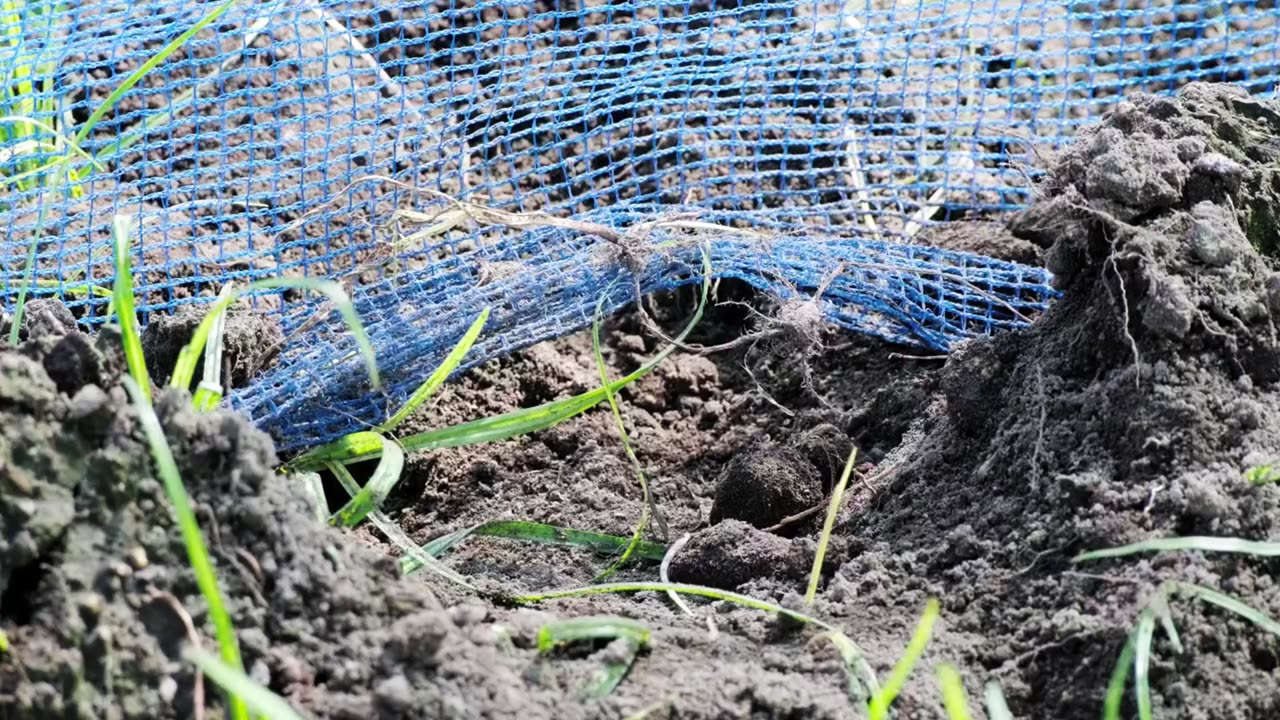Premium Only Content

Bird Flu Declared ‘Widespread’ in Massachusetts—Should You Be Worried?
Bird Flu Declared ‘Widespread’ in Massachusetts—Should You Be Worried?
## **Intro: A Silent Threat Spreading Across Massachusetts**
It started with a few reports of dead birds in Massachusetts. Now, officials are saying **bird flu is widespread**—and it may be even more prevalent than we realize. But how bad is this outbreak? And more importantly, should you be concerned?
Bird flu, or **Highly Pathogenic Avian Influenza (HPAI),** is spreading fast, affecting both wild and domestic birds. But here’s the kicker: **infected birds don’t always show symptoms** before they spread the virus. Wildlife officials are urging the public to stay away from sick or dead birds—**but could this virus jump to humans?**
Stay tuned as we break down everything you need to know: how this outbreak started, what makes this virus so dangerous, and the **real risks to humans and pets.** Make sure to **like, comment, and subscribe** to stay updated on this developing situation!
---
## **1. How Bad Is the Bird Flu Outbreak in Massachusetts?**
**Hook:** If you haven’t seen sick birds in your area, don’t assume you’re safe—this outbreak is bigger than you think.
Massachusetts officials have declared bird flu **widespread,** meaning it’s likely **present even in places where cases haven’t been confirmed yet.** That’s a huge red flag.
Here’s what we know so far:
- **Both wild and domestic birds** are being infected.
- **Raptors (birds of prey), waterfowl, and aquatic birds** are at the highest risk.
- The virus **can be present without causing symptoms**, making it even harder to track.
In **Plymouth, Massachusetts**, **Canada geese, swans, and other birds** have been found dead from suspected bird flu infections. Officials are now warning that **preliminary positive cases** are popping up across the state.
But Massachusetts isn’t alone. **Bird flu has been spreading across the U.S. since 2022, leading to mass outbreaks in poultry farms and wildlife.** Could Massachusetts become one of the worst-hit states?
---
## **2. Can Bird Flu Jump to Humans? Here’s What You Need to Know**
**Hook:** Could this virus spread beyond birds? Here’s what experts are saying.
Right now, **the CDC says the risk to humans is low**—but that doesn’t mean it’s zero.
Historically, humans **have** been infected with bird flu, but only through **direct contact with sick birds.** Infected humans have shown symptoms ranging from **mild (fever, eye infections)** to **severe (pneumonia, respiratory failure, and even death).**
Here’s the current situation in Massachusetts:
✅ **No confirmed human infections yet.**
✅ **No evidence of human-to-human transmission.**
⚠️ **People in direct contact with birds—like farmers, hunters, and wildlife workers—are at higher risk.**
The **real concern** is whether this virus could mutate. If bird flu **evolves to spread between humans,** we could be dealing with a major public health threat. **That’s why scientists are monitoring this outbreak closely.**
---
## **3. How Is Bird Flu Spreading So Fast?**
**Hook:** This outbreak isn’t just about farms—wild birds are making it unstoppable.
One of the **biggest challenges** with controlling bird flu is that **wild birds, especially ducks and geese, can carry the virus without getting sick.** These birds migrate long distances, unknowingly **spreading the virus to new areas.**
Here’s why this outbreak is getting worse:
🚀 **Wild birds act as carriers, spreading the virus undetected.**
🐦 **Massachusetts has large waterfowl populations**, making it a high-risk area.
🦊 **Even mammals like foxes can catch bird flu** if they scavenge infected birds.
The problem? **This virus doesn’t just disappear.** If it keeps circulating in wildlife, new outbreaks will continue to pop up—making it much harder to stop.
---
## **4. What Can You Do to Stay Safe?**
**Hook:** Even if you don’t own birds, you could still be at risk—here’s how to protect yourself.
State officials are **urging the public** to take precautions to prevent further spread. Here’s what you need to do:
🚫 **Avoid touching sick or dead birds.** If you see a bird that looks ill or has died suddenly, **do NOT handle it.** Instead, report it to your local wildlife agency.
🐶 **Keep pets away from wildlife.** Dogs and cats can be exposed to bird flu if they eat or come into contact with infected birds. **If you live in an outbreak area, keep cats indoors and dogs on a leash.**
🔪 **Hunters should take precautions.** If you hunt wild birds, follow these safety tips:
✔️ Wear gloves when handling game.
✔️ Wash hands thoroughly after contact.
✔️ Cook meat to an internal temperature of **165°F (74°C)** to kill any potential virus.
🧼 **Practice good hygiene.** The virus can survive on surfaces, so **always wash your hands** after being outdoors or handling animals.
Following these simple steps can **reduce your risk of infection** and help stop the virus from spreading further.
---
## **5. What’s Next? Could This Outbreak Get Worse?**
**Hook:** Is Massachusetts facing an even bigger crisis? Here’s what experts predict.
Right now, officials are **tracking and containing the outbreak** as best as they can. But stopping the spread won’t be easy.
Here’s why this could get worse:
🔥 **Wild birds will keep spreading the virus.** Migration patterns mean that infected birds could **bring the virus to new areas.**
🚨 **If the virus reaches poultry farms, mass cullings will happen.** This could lead to **egg shortages and rising food prices.**
🦠 **Mutation is a real risk.** If bird flu mutates to spread easily in humans, it could become a **global public health emergency.**
So, what can we expect? While the CDC **doesn’t see an immediate human threat**, the risk isn’t gone. **As long as the virus remains in wildlife, it has the potential to evolve and spread.**
That’s why scientists **aren’t taking any chances**—and why you should stay informed about new developments.
---
## **Outro: Stay Safe & Stay Informed!**
The bird flu outbreak in Massachusetts is a **serious issue** that could impact **wildlife, pets, and even public health.**
What do you think? **Have you seen any dead birds in your area?** Are you concerned about this outbreak? **Let’s talk about it in the comments!**
🚨 **Don’t forget to like, share, and subscribe** for the latest updates on health and science news. Stay safe, and see you in the next video! 🎥🐦
-
 1:08:07
1:08:07
Bek Lover Podcast
8 hours agoInteresting Times with Bek Lover Podcast
27.7K -
 1:51:12
1:51:12
Tate Speech by Andrew Tate
12 hours agoEMERGENCY MEETING EPISODE 105 - UNBURDENED
189K97 -
 1:01:18
1:01:18
Tactical Advisor
14 hours agoBuilding a 308 AR10 Live! | Vault Room Live Stream 016
163K12 -
 2:17:02
2:17:02
Tundra Tactical
1 day ago $28.36 earnedTundra Nation Live : Shawn Of S2 Armament Joins The Boys
261K28 -
 23:22
23:22
MYLUNCHBREAK CHANNEL PAGE
2 days agoUnder The Necropolis - Pt 5
206K68 -
 54:05
54:05
TheGetCanceledPodcast
1 day ago $14.79 earnedThe GCP Ep.11 | Smack White Talks Smack DVD Vs WorldStar, Battle Rap, Universal Hood Pass & More...
199K35 -
 8:30
8:30
Game On!
18 hours ago $0.85 earnedLakers BLOCKBUSTER trade! Luka Doncic is coming to LA!
30.4K4 -
 48:29
48:29
hickok45
23 hours agoSunday Shoot-a-Round # 266
26.7K10 -
 15:18
15:18
SternAmerican
3 days agoStern American with Sam Anthony from YourNews.com
20K1 -
 1:03:13
1:03:13
PMG
1 day ago $1.94 earnedRFK, Tulsi & Kash Hearings, the Plane Crash in the Potomic, & Ozempic
18.1K1